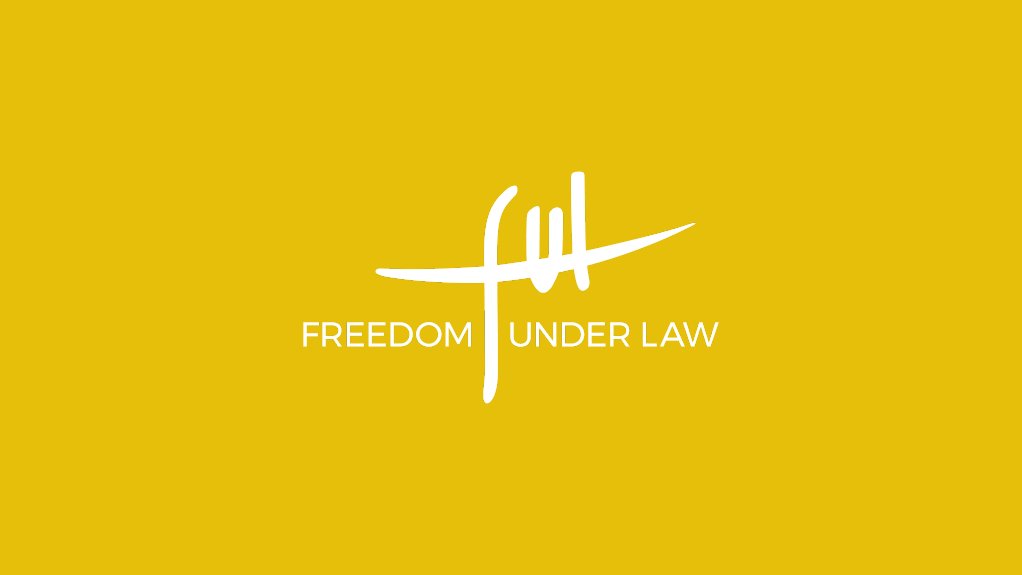Freedom Under Law (FUL) has launched urgent legal action to force the Judicial Service Commission (JSC) to reconsider its decision not to fill two vacancies at the increasingly under-resourced Supreme Court of Appeal (SCA) – and to exclude "excellent" Judge David Unterhalter.
"The legal challenge comprises two parts. In part A, FUL asks that the JSC be ordered to determine whether the remaining candidates are fit for appointment and, if so, to fill the two remaining vacancies on the SCA. FUL is asking for part A to be heard on an urgent basis," FUL said in a press statement on Thursday.
It hopes that this urgent case will be heard on 20 January 2024.
"In part B, FUL seeks to address underlying material issues in the manner in which the JSC conducts its processes by seeking an order that the JSC develop and publish criteria to assess candidates for appointment through an assessment of objective criteria, and to require commissioners to assess candidates in writing for compliance with these criteria."
In papers filed at the Gauteng High Court in Johannesburg, FUL effectively seeks urgent and more far-reaching relief in its multi-pronged legal challenge, which is aimed at ensuring that competent judicial candidates will not be denied appointment on arbitrary grounds.
FUL launched the legal action after it emerged that unsubstantiated claims of racism and arrogance had blocked widely respected Judge David Unterhalter from being appointed to the SCA – in what experts slammed as further evidence of the JSC's irrational decision-making.
Despite being described by SCA deputy president Xola Petse as one of the "heavy lifters and lawyers of substance" the appeal court desperately needs following the retirements and promotions of its most senior judges, Unterhalter was not appointed to South Africa's second most powerful court when he interviewed for one of its four vacancies last month.
In a letter explaining its SCA appointment decisions, the JSC also noted that some of its commissioners had considered Gauteng High Court Judge Thina Siwendu – who has competently handled several high-profile cases and has much-needed experience as a commercial lawyer and business rescue expert – as "an excellent candidate" who wrote "cogently on questions of transformation of society and rule of law".
Despite this, "some" unnamed commissioners felt that Siwendu did not have enough experience as a high court judge, the JSC told the Council for the Advancement of the South African Constitution (Casac).
FUL's legal action will now compel the JSC to disclose transcripts of the four hours of deliberations that informed its decision to appoint judges Fayeeza Kathree-Setiloane and Maleshane Kgoele to the SCA, leaving two vacancies at that court open.
While Kathree-Setiloane was a clear favourite among commissioners (having received 20 votes from a pool of 23 commissioners), the JSC's letter to Casac reveals that some commissioners were "not convinced" by the answers that Kgoele gave in her interview, "and whether these reflected an adequate grasp of legal principles".
Like Siwendu, concerns over whether Kgoele had enough experience to qualify for appointment to the SCA were also raised, but she still received the 12 votes she needed to be appointed. According to the JSC, this was after a first round of voting saw five unidentified candidates receiving enough votes to be appointed. Twelve votes was the minimum needed for an appointment, it told Casac.
For reasons that remain unclear, a second round of voting resulted in the three candidates who'd previously qualified for appointment not getting the votes they required to be elevated to the SCA.
It also remains unclear why, since these candidates were considered to be suitable for appointment, voting did not continue until the vacancies were filled.
This is a key issue the FUL litigation will force the JSC to explain.
EMAIL THIS ARTICLE SAVE THIS ARTICLE
To subscribe email subscriptions@creamermedia.co.za or click here
To advertise email advertising@creamermedia.co.za or click here











